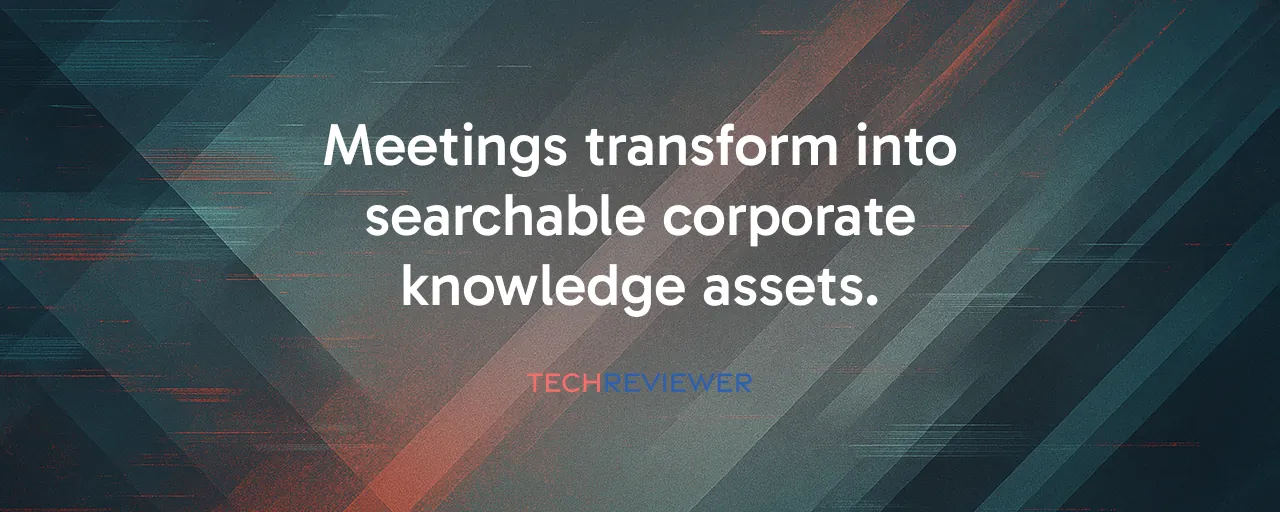Meetings Get a Brain Upgrade
Meetings used to be fleeting moments, often lost to scribbled notes or foggy memories. Otter.ai, a Silicon Valley company founded in 2016, wants to change that. Their latest release, announced on October 7, 2025, shifts the game by turning conversations into a searchable, actionable corporate knowledge base. This approach transforms every discussion into a lasting asset for businesses. With over one billion meetings processed and a presence in 75% of Fortune 500 companies, Otter is betting big on this vision.
The new tools include a public API that lets companies plug meeting data into platforms like Jira or HubSpot, a server connecting Otter's data to AI models like Claude, and smart agents that dig through meeting histories to answer questions. For example, a sales rep can pull up last quarter's client call to prep for a pitch, or a project manager can find action items buried in a months-old stand-up. Otter's CEO, Sam Liang, says this helps companies scale smarter, not just transcribe faster.
Real-World Wins Show the Potential
The impact is already clear in practice. A global IT services firm slashed support ticket search times from nine minutes to 47 seconds by using a knowledge base powered by meeting data, saving over 2,000 hours per quarter. Meanwhile, a telecom provider cut 15,000 agent hours in six months while boosting customer retention by nearly 4%. These numbers show how turning conversations into searchable records can transform how teams work.
Otter's tools also shine in unexpected ways. Sales teams get tailored summaries that highlight deal-closing insights, while recruiters can revisit candidate interviews to catch overlooked details. The system's ability to work across Zoom, Microsoft Teams, and Google Meet makes it a seamless fit for hybrid work, where 28% of UK workers were in hybrid setups as of 2023. By automating action item tracking and follow-ups, Otter frees up mental space for actual collaboration.
Standing Out in a Crowded Field
Otter isn't alone in the meeting assistant space. Since the AI boom of 2022, startups like Fireflies, valued at $1 billion in June 2025, and Granola, which raised $60 million despite a small user base, have flooded the market. Fireflies has seen a surge in interest and reached unicorn status, while Granola focuses on niche integrations. Otter sets itself apart with its proprietary AI infrastructure, avoiding reliance on OpenAI's APIs for better control over performance and costs.
Unlike competitors sticking to transcription, Otter's focus is on integration. Its API and Model Context Protocol server, an open standard adopted by Anthropic in 2024, let developers tie meeting data to multiple AI platforms. This flexibility makes Otter a hub for enterprise ecosystems. Zoom's choice of Otter as its primary transcription provider underscores its reliability at scale.
The Privacy Question Looms Large
Still, not everyone's thrilled about turning every meeting into a permanent record. Employees worry about surveillance, especially when managers can search discussions for performance reviews. Some feel recorded meetings stifle candid talk, reducing the spontaneity that sparks creativity. Otter addresses this with HIPAA compliance for healthcare and SOC 2 certification for security, plus options like a desktop app that records without a visible bot joining calls. The question of who owns meeting data, especially when clients or partners are involved, remains complex.
Privacy laws add complexity. Europe's GDPR demands strict consent, while US states vary on recording rules. Otter's encryption and access controls aim to ease these concerns, but cultural resistance persists in some workplaces. The tradeoff is between better knowledge sharing and the risk of feeling watched. Companies need clear policies to balance these tensions.
What's Next for Meeting Intelligence
The meeting assistant market is projected to hit $15-$27 billion by 2032, growing at 24-26% annually. Otter's pivot taps into this by treating meetings as a core business asset, much like CRM systems turned customer data into gold. Challenges remain, like maintaining accuracy across accents and noisy settings, and scaling AI processing for billions of meetings demands hefty computing power. Long-term, Otter could integrate with knowledge graphs, linking meeting data to emails and documents for a unified view of corporate intelligence.
The bigger picture involves reshaping work. By making meetings searchable and actionable, Otter enables asynchronous collaboration across time zones, leveling the playing field for remote teams. It also raises questions about whether constant documentation changes how we connect. As tools like Otter evolve, they must balance efficiency with the human side of collaboration.
